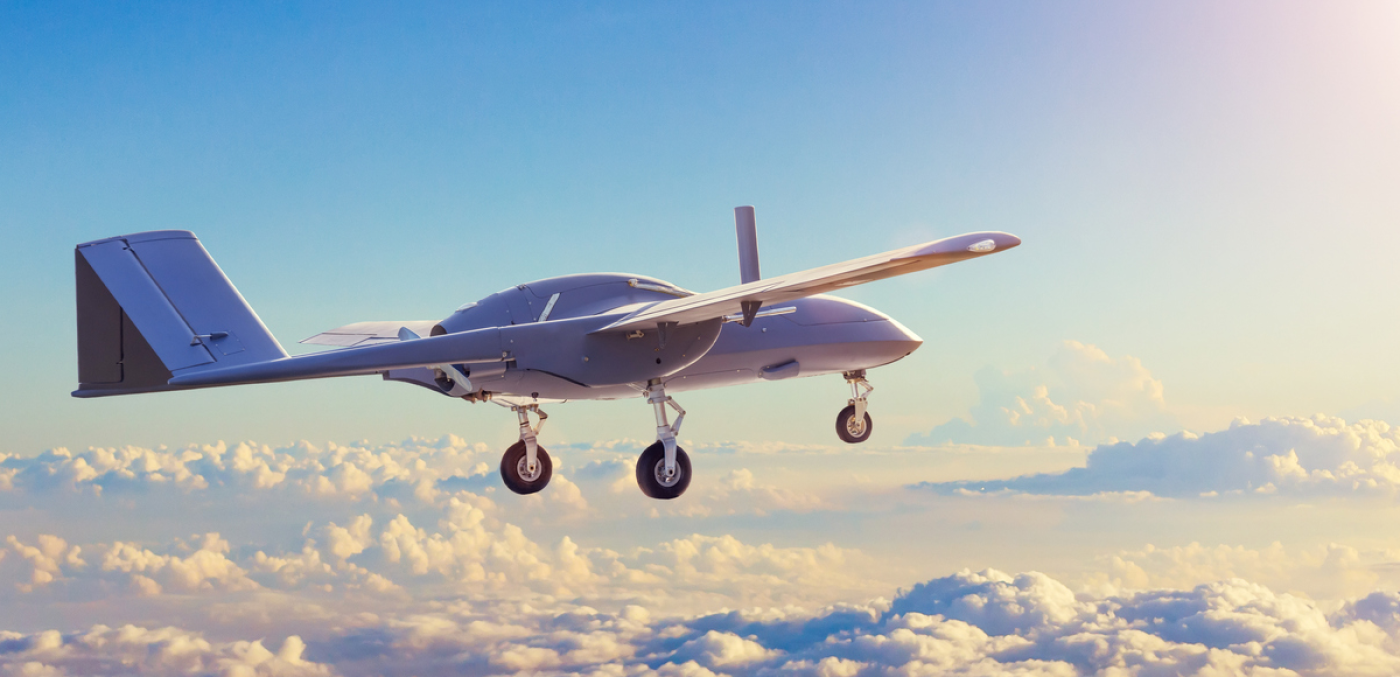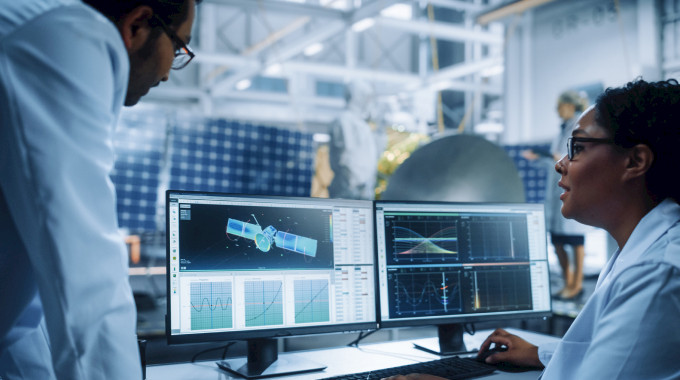Devices to send cargo anywhere in the word within 90 minutes or provide ridesharing services in space. Commercial planes that run on hydrogen fuel or provide supersonic speeds on sustainable fuel.
These are among the technological breakthroughs being developed by four privately held aerospace companies that are attracting investor attention.
Sierra Space
The result of a 2021 spinoff from defense contractor Sierra Nevada, Sierra Space has emerged as a leader in commercial infrastructure and transportation for outer space.
Sierra created the NASA-contracted, reusable spaceplane Dream Chaser which supplies cargo to the International Space Station and may in the future carry humans into space. But an article in CNBC recently said that the company is also working in partnership with Jeff Bezos’ Blue Origin on a commercial space station. And in January 2024, the company announced that it had won a $740 million Defense Department contract to design and produce 18 missile warning and tracking satellites.
Sierra Space’s Forge Price™ was $100 as of May 2, 2024 which implies a valuation of $4.5 billion.
Firefly Aerospace
Founded in 2013, Firefly Aerospace is aiming to launch commercial space vehicles in the future. On March 21, the company announced in a press release that it had struck a deal with the Defense Department to conduct a trade study on its capabilities to rapidly launch Firefly's Elytra vehicles and support missions beyond Geosynchronous Orbit, or GEO.
“Firefly's robust vehicle lines and proven responsive space capabilities put us in a unique position to rapidly service the vast region of space from GEO to the Moon and beyond," said Bill Weber, CEO of Firefly Aerospace, in prepared comments in the release.
Firefly Aerospace’s Forge Price™ is $4.94 as of May 2, 2024 which implies a valuation of $2.09 billion.
Boom Supersonic
More than two decades after the Concorde flew its last flight between Europe and the U.S., Boom Supersonic is intent on bringing back commercial supersonic flight. Only this time around, the fuel that will power these aircrafts of the future is sustainable and can reduce carbon emissions by 80%.
Recently, the company took a step toward this goal. On March 22, Boom announced the successful flight over the Mojave Desert of XB-1, a demonstrator model for the company’s planned Overture. Blake Scholl, founder and CEO of Boom Supersonic, said in prepared remarks that the flight “marks the most significant milestone yet on our path to bring supersonic travel to passengers worldwide."
The XB-1 program, according to the company, is providing the foundation for the development of Overture, which the company says could begin to fly commercially by 2029.
Boom Supersonic’s Forge Price™ is $45.46 as of May 2, 2024 which implies a valuation of $1.18 billion.
ZeroAvia
Like Boom, ZeroAvia is developing commercial aircrafts that don’t run on fossil fuels. But in the case of ZeroAvia, the focus is on hydrogen. In November 2023, the Hollister, California-based company announced that it had completed a $116 million Series C funding round.
In April, trade publication Aviation International News reported that ZeroAvia plans to provide maintenance, repair, and overhaul services for regional aircraft powered by its hydrogen-electric propulsion system. “California-based ZeroAvia is working to achieve type certification for its 600-kilowatt ZA600 powertrain for aircraft seating between nine and 19 passengers,” the article stated.
ZeroAvia’s Forge Price™ is $9.69 as of May 2, 2024 which implies a valuation of $640 million.







